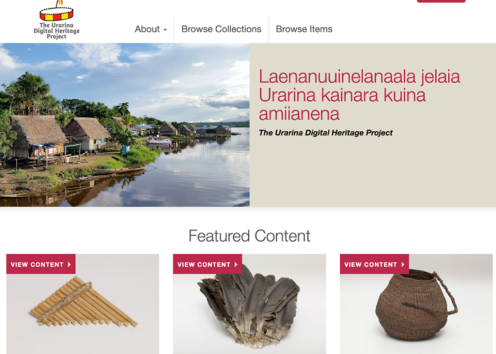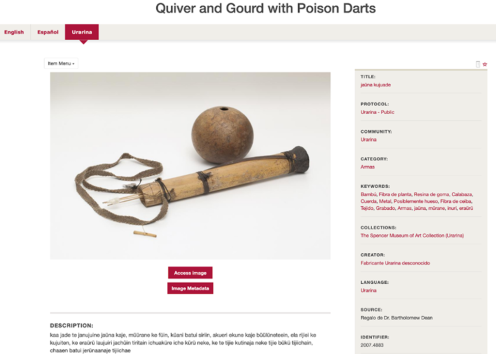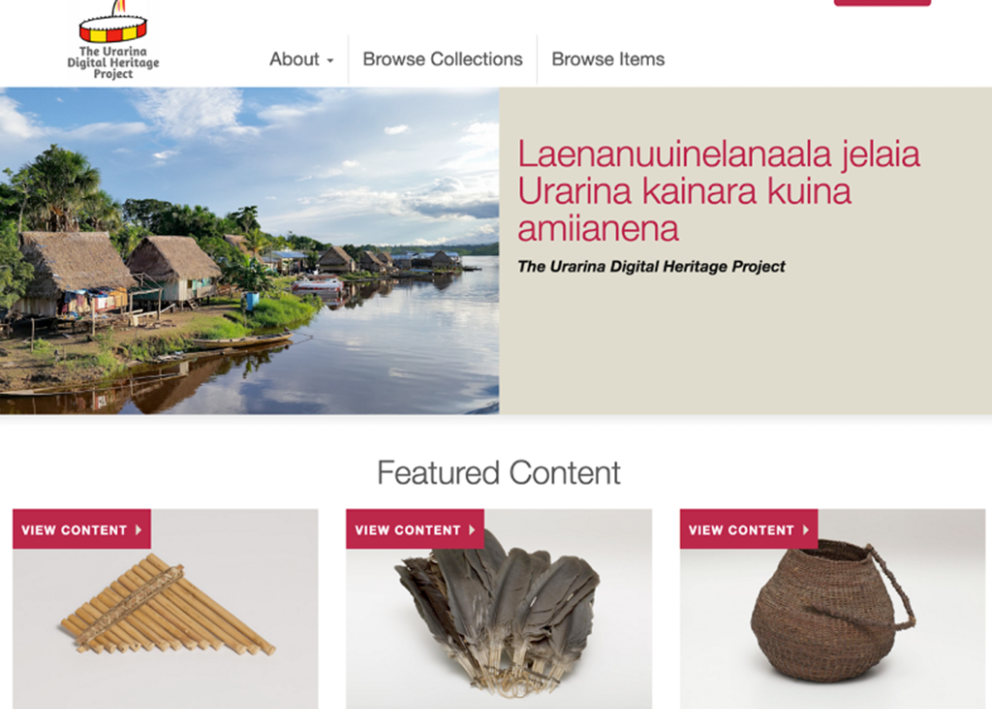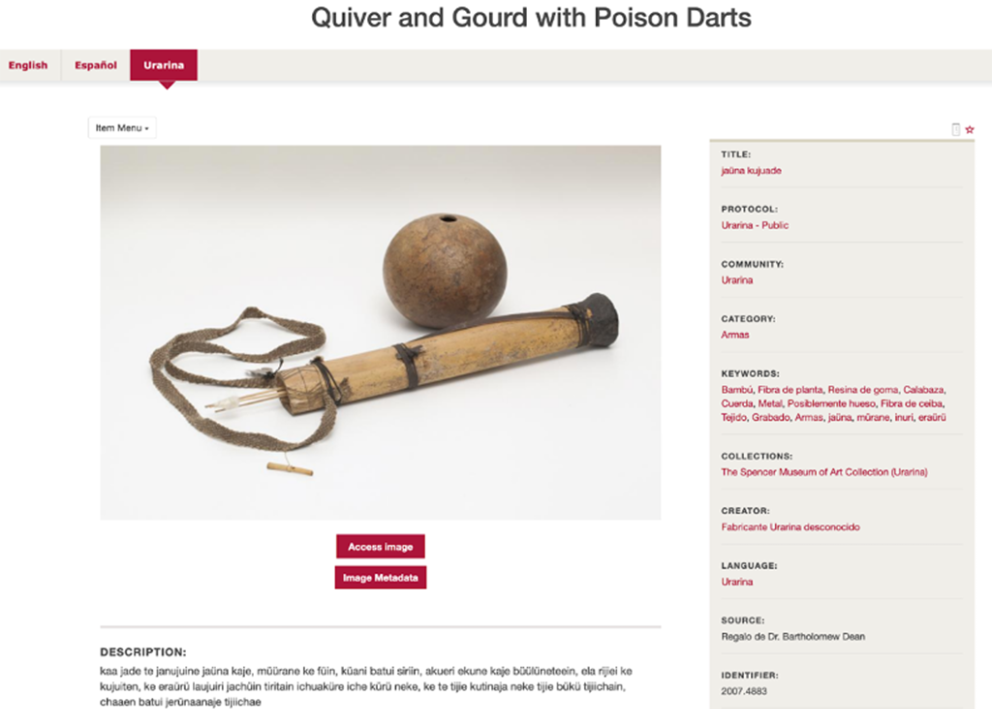Bartholomew Dean (Professor, Anthropology), Brian Rosenblum (Librarian and co-director, Institute for Digital Research in the Humanities) and Sylvia Fernández (University of Texas–San Antonio, former postdoctoral researcher at the IDRH) presented their collaborative digital research project on Urarina material culture at the annual conference of the Argentine Association of Digital Humanities, at the Universidad Nacional del Comahue in General Roca, Argentina (https://www.aacademica.org/aahd2022).
The Urarina Digital Heritage Project is a collaborative, international effort that makes Urarina cultural heritage items held at the Spencer Museum of Art accessible in multilingual form to the general public and to the Urarina community in the Peruvian Amazon from which they originated.
This pilot project was supported in 2021 by funds from CLACS, along with travel support to attend the conference. Fusing public anthropology with digital humanities, the project makes use of Indigenous information management systems and cultural protocols to create a digital collection of Urarina cultural heritage. The project involves a number of collaborating units, including the Spencer Museum of Art, the Public Anthropology Program, and the Institute for Digital Research in the Humanities (all at KU); the Mukurtu software development team at Washington State University; scholars at the University of Texas, San Antonio and University of University of Coimbra; along with members of the Urarina community.
For the conference, the team, with help from KU Anthropology graduate student Emma Bruce, developed a pilot website featuring 104 images of objects from the Spencer Museum Collection, originally collected and gifted by Dean. The site includes trilingual metadata (in English, Spanish and Urarina) and makes use of Mukurtu, a content management system designed specifically to manage Indigenous cultural heritage.
The conference, whose theme was “Miradas desde el Sur/Views from the South,” presented an opportunity for the team to share, receive feedback, and explore issues related to public Indigenous digital archives, collective privacy, digital infrastructure, and Global North/South collaborations in digital humanities.
Future stages of the project will include adding additional contextual material (such as text and audio descriptions) from the Urarina community members to the collections; adding additional content and items to the collection, and working with local partners in Peru and Urarina community members to further test and refine the collection.



